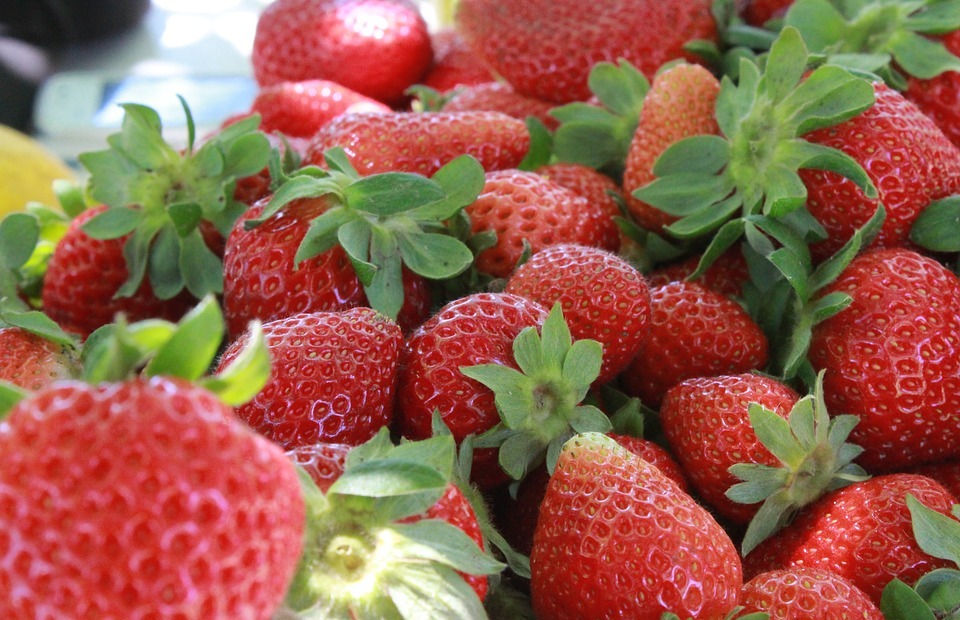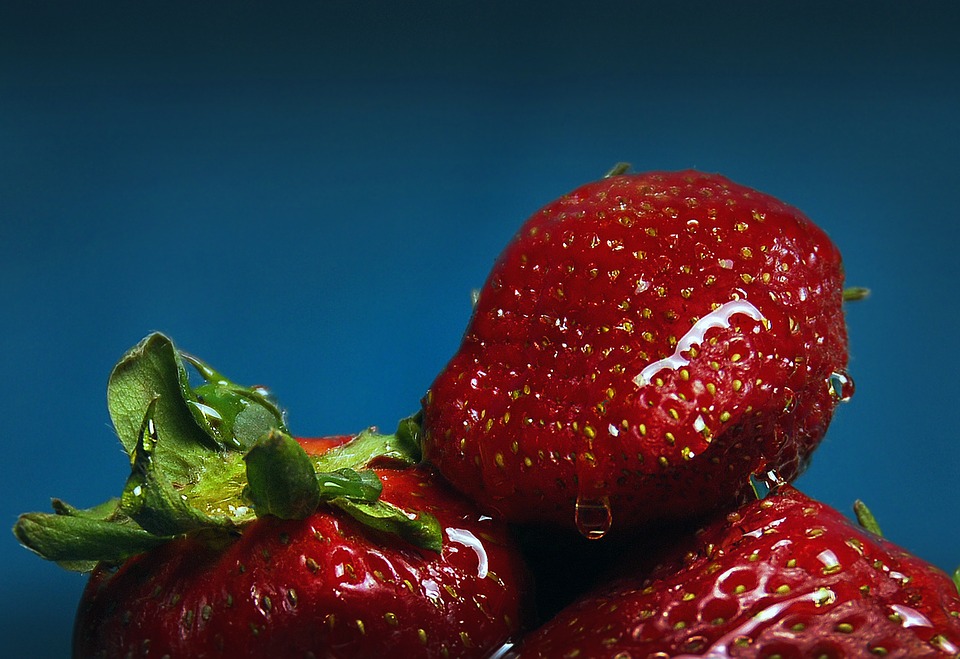This article provides a comprehensive guide to the safe consumption of strawberries by rabbits, exploring the nutritional benefits, potential risks, and how to safely incorporate this fruit into your bunny's diet. We'll delve into the specifics of strawberry consumption, compare it to other fruits, and offer a detailed list of safe and unsuitable fruits for your rabbit.
Part 1: The Strawberry Dilemma: Can Rabbits Eat Them?

1.1 Exploring the Nutritional Value of Strawberries
Strawberries, a beloved fruit amongst humans, offer several nutritional benefits, but are they suitable for rabbits? While not a staple food, strawberries can provide:
Vitamin C: Strawberries are a decent source of Vitamin C, crucial for immune system health and connective tissue support.
Antioxidants: These potent compounds in strawberries help fight off cell damage and reduce the risk of chronic diseases.
Fiber: Though lower in fiber compared to vegetables, strawberries do contain dietary fiber beneficial for digestive health.
1.2 The Potential Risks Associated with Strawberries
Despite their benefits, strawberries pose potential risks for rabbits due to their:
High Sugar Content: Compared to vegetables, strawberries have a relatively high sugar content. Excessive sugar intake can lead to weight gain, dental issues, and digestive problems.
Acidity: The high acidity of strawberries can irritate a rabbit's sensitive digestive system, potentially causing diarrhoea or other digestive problems.
Pesticide Residues: Strawberries are often treated with pesticides, which can be harmful to rabbits. Thorough washing is essential.
1.3 Navigating the Safe Consumption of Strawberries
If you choose to offer strawberries, do so responsibly:
Moderation is Key: Strawberries should be offered only as an occasional treat, not as a regular part of the diet.
Small Bites, Big Difference: Give small, bite-sized pieces of strawberry to avoid overfeeding.
Wash Thoroughly: Always wash strawberries thoroughly under running water to remove any pesticides or dirt.
Monitor for Reactions: Observe your rabbit closely for any signs of digestive upset after eating strawberries. If you notice any issues, stop feeding them strawberries immediately.
Part 2: Beyond Strawberries: A Comprehensive Guide to Safe Fruits

2.1 Fruits Safe for Rabbits in Small Amounts:
Berries:
Raspberries: Low in sugar, rich in antioxidants, and a good choice for rabbits.
Blueberries: High in fiber and antioxidants, making them a beneficial treat.
Blackberries: Similar to raspberries, with slightly higher sugar content, so moderation is key.
Other Fruits:
Apples: Low in sugar, rich in fiber, and safe in small amounts, but remove the core and seeds.
Bananas: High in potassium and fiber, but offer in moderation due to their sugar content.
Mangoes: Low in sugar, rich in vitamins and antioxidants, but only offer small pieces.
2.2 Fruits to Avoid at All Costs:
Citrus Fruits: Oranges, lemons, limes, grapefruits are highly acidic and can cause severe digestive upset.
Grapes and Raisins: These fruits are toxic to rabbits and can cause kidney failure, even in small quantities.
Stone Fruits: Peaches, plums, cherries contain pits that are toxic and can cause digestive problems.
Avocado: Avocados contain persin, a toxic compound harmful to rabbits.
2.3 Tips for Offering Fruits to Rabbits:
Gradual Introduction: Introduce new fruits slowly, offering only a small piece initially. Observe your rabbit for any reactions.
Variety is Essential: Offer a variety of safe fruits to ensure your rabbit receives a balanced diet.
Avoid Overindulgence: Fruits should be given in small amounts, as a treat, not a staple food.
Remove Seeds and Pits: Always remove seeds, pits, and stems from fruits before offering them to your rabbit.
Part 3: Vegetables: The Superior Choice for Rabbit Nutrition
While fruits can be a healthy treat for rabbits, they should not be the primary source of nutrients. Vegetables provide a much better balance of essential vitamins, minerals, and fiber:
Leafy Greens: Spinach, kale, romaine lettuce, parsley, cilantro are excellent sources of vitamins and minerals, providing a healthy boost.
Other Vegetables: Bell peppers, carrots, broccoli, celery, zucchini are good choices for variety and nutrients.
Hay: The Cornerstone: Timothy hay should be the cornerstone of your rabbit's diet, providing essential fibre and supporting digestive health.
Part 4: Understanding the Role of Hay in a Rabbit's Diet
Hay is not just a filler; it's crucial for a rabbit's well-being:
Digestive Health: Hay provides essential fibre, promoting healthy digestion and preventing digestive problems.
Dental Health: Chewing hay helps wear down teeth, preventing overgrown teeth and dental issues.
Mental Stimulation: Hay provides mental stimulation and prevents boredom, making it a crucial element of a rabbit's enrichment.
4.1 Choosing the Right Hay
Timothy Hay: Timothy hay is the best choice for adult rabbits, providing a good balance of nutrients and fiber.
Other Hay Options: Other hay options like oat hay and alfalfa hay can be given in moderation.
Part 5: FAQs
5.1 Can rabbits eat strawberry leaves?
No, strawberry leaves are toxic to rabbits and should be avoided.
5.2 Can baby rabbits eat strawberries?
Baby rabbits, especially those under 12 weeks old, have more sensitive digestive systems. It's best to avoid feeding strawberries to baby rabbits.
5.3 How often can I give my rabbit strawberries?
Strawberries should be offered only as an occasional treat, no more than once or twice a week.
5.4 Can rabbits eat strawberry seeds?
While strawberry seeds are generally not harmful, it's best to remove them before feeding strawberries to your rabbit.
5.5 What are the signs of a rabbit eating too many strawberries?
Signs of overfeeding include diarrhoea, bloating, weight gain, and dental problems.
5.6 What are the benefits of feeding rabbits hay?
Hay provides essential fibre for digestion, helps to wear down teeth, and prevents boredom.
5.7 How much fruit should I feed my rabbit?
A general rule of thumb is to limit fruit to 1-2 tablespoons per day, depending on your rabbit's size and weight.
5.8 How often should I change my rabbit's hay?
You should change your rabbit's hay daily to ensure freshness and prevent mold growth.
5.9 How can I encourage my rabbit to eat hay?
Freshness: Offer fresh hay daily.
Variety: Try different types of hay to find their favorite.
Location: Place the hay in a convenient and accessible location.
Enrichment: Use hay in toys and enrichment items to make it more appealing.
Everyone is watching
-

Do Rabbits Lay Eggs? (The Surprising Truth)
OTHER TYPES OF PETSThis article will unravel the common misconception that rabbits lay eggs, exploring the fascinating world of r...
-

Can Rabbits Eat Grapes? A Guide to Safe Rabbit Treats
OTHER TYPES OF PETSThis comprehensive guide will explore the safety and suitability of grapes for rabbits, providing detailed inf...
-

What's a Group of Rabbits Called? (A Comprehensive Guide)
OTHER TYPES OF PETSThis article delves into the fascinating world of rabbits, exploring the various terms used to describe a grou...
-

Predators That Hunt Rabbits: A Guide to Natural Enemies
OTHER TYPES OF PETSI've always been fascinated by the circle of life, that delicate dance between predator and prey. Growing up ...
-

Are Rabbits Nocturnal Animals?
OTHER TYPES OF PETSThe question of whether rabbits are nocturnal animals is a fascinating one, with a surprisingly complex answer...
